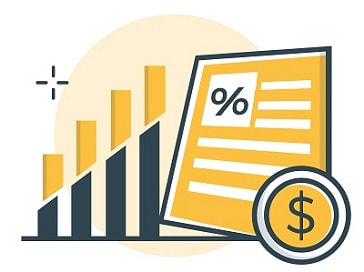Returning to the UK from New Zealand - The Definitive Financial Guide
If you're considering moving back to the UK from New Zealand, our comprehensive guide covers crucial financial topics like KiwiSaver, pensions, investments, and other must-know considerations.
Updated 11 May 2023
Summary:
Our guide explains what you need to consider. We cover:
Know This First: This guide has a lot of useful information and is, arguably, a slow read published to help you understand the wider issues many people encounter when moving back to the UK from New Zealand. We've collaborated with industry experts who have generously dedicated their time to empower anyone facing this move with information to make it more straightforward. If you have any suggestions for improvement, please contact our research team.
- There are many reasons you need or want to return to the UK; maybe your circumstances have changed, or aged parents have become frail, or your children have returned to the UK for an OE and decided to stay put, or the cost of living in New Zealand causes too many sacrifices, or it could be your love affair with New Zealand has ended.
- You may have intended to stay forever and therefore have invested money locally. Whatever your needs, our guide is published to help you make an informed decision about certain matters.
Our guide explains what you need to consider. We cover:
- Can I retain my KiwiSaver, or must it be cashed in?
- Can I retain other investments in New Zealand?
- I transferred a UK pension to New Zealand; what happens now? What are my options?
- I transferred a UK pension to New Zealand and received money from it; what happens now? What are my options?
- Can my New Zealand financial adviser continue providing financial advice on my New Zealand investments?
- How do I find a trustworthy UK financial adviser?
- What else should I consider?
- Frequently Asked Questions
Know This First: This guide has a lot of useful information and is, arguably, a slow read published to help you understand the wider issues many people encounter when moving back to the UK from New Zealand. We've collaborated with industry experts who have generously dedicated their time to empower anyone facing this move with information to make it more straightforward. If you have any suggestions for improvement, please contact our research team.
Can I retain my KiwiSaver, or must it be cashed in?
- The simple answer is you don't need to cash in your KiwiSaver, but it is an option if you want to keep your affairs as simple as possible, but you can't do this until 12 months have elapsed since you left New Zealand.
- If you decide to cash in, you are entitled to retain the fund value attributable to your and your employer's contributions and the $1,000 'kickstart 'payment if you received it, but all the government matching contributions received each year ($521.40 ) must be returned to the New Zealand Government. However, you retain any investment gains on that money.
- If you decide not to cash in and wait until you reach New Zealand State Retirement Age (currently 65), you can keep the entire fund value, including all the $521.40 government contributions.
- However, you need to remember that your account will be in New Zealand Dollars, so you will be exposed to swings in currency exchange rates between NZD and GBP whilst the investment is held. The risk can be managed by considering an investment fund with an international investment remit allied to an active currency hedging strategy that aims to add value to investors.
- Your KiwiSaver fund is taxed at the widely held shares rate of 28% or, if it's a Portfolio Investment Entity (PIE) fund, it is taxed at your appropriate Portfolio Investment Rate (PIR). You can check the correct rate that should apply after leaving New Zealand by visiting the IRD's website.
But you need to consider the following:
- How much of my fund would be returned to the NZ Government if I encash it when I am first eligible?
- What will I use the money for if I choose to encash it? If you plan to reinvest it into a UK pension plan, provided you don't exceed the annual allowance (the maximum you can contribute to a UK pension each year). It will be grossed up by the basic UK tax rate (making the contribution even larger). If you are a higher-rate taxpayer in the UK, you may claim extra tax relief via a self-assessment tax return.
- Am I better off financially keeping the KiwiSaver until the NZ State pension age (and thereby keeping the entire fund) or reinvesting the current fund (less the total NZ Government's annual contribution) in a UK pension plan or perhaps Individual Savings Account (ISA)?
Important: You need to remember that under current rules, the value of your KiwiSaver at retirement would be available as a tax-free sum in your hands in the UK. In contrast, the UK pension would only allow 25% of the fund value to be taken tax-free (under current legislation), with the balance taxed at marginal rates. Current rules allow you to access as much or little from a UK pension each year, but rules could change. For example, before 2015, individuals had to buy an annuity or draw down from their remaining fund value based upon a set of tables published by the Government Actuary Department and linked to current interest rates at the time of the calculation (usually carried out every three years). The investment returns achieved by your KiwiSaver will be taxed each year, but a UK Pension plan or ISA grow in a very tax-favourable environment.
Because of the complexity, we suggest you consider consulting a UK adviser for advice on what will likely produce the best and most appropriate outcome.
Can I retain other investments in New Zealand?
Yes - but you must consider the implications of tax treatment differentials between the UK and New Zealand and how you will secure advice and ongoing information about your New Zealand Investment. Cashing in a term deposit might also incur penalty interest.
I Transferred a UK pension to New Zealand; what happens now? What are my options?
- You can retain your New Zealand QROPS if you wish. However, you need to bear in mind the same implications around taxation and ongoing advice as outlined in our dedicated QROPS guide. In addition, by returning to the UK, the New Zealand QROPS will have to disclose to New Zealand's IRD (for tax sharing information purposes between the two countries) and the UK tax office any payments made to you going forwards.
- The added complication is that the money transferred originally is fixed in value; HMRC isn't interested in any growth or investment loss achieved on the money whilst it is invested in a New Zealand QROPS. So 25% of the original value transferred would be available (under current UK rules) as a tax-free lump sum, but the residual 75% is taxed as income at marginal tax rates. Other money in the fund (such as investment returns) may also be assessed for income tax if HMRC treats it as income from foreign superannuation.
- Our example explains this best: Ignoring currency to keep things simple, if you transferred £100,000 originally and it is now worth £200,000, HMRC are only interested in the £100,000 originally transferred, meaning that when receiving money from the QROPS, 25% would be tax-free (under current rules). The residual £75,000 would be taxed as income at marginal rates as you receive it. The residual £100,000 is money in foreign superannuation, and 'income' received from it whilst living in the UK is open to interpretation by HMRC.
- You could opt to transfer the entire fund to a UK pension. If you are lucky enough to be offered membership of a defined benefit (Final Salary or Career Average Revalued Earnings [CARE]) scheme, the administrators may offer a fixed annual pension at retirement (which would benefit from an element of inflation proofing provided for under the rules of the scheme) or added years of membership of the pension scheme. You should seek financial advice in the UK on the best option.
- You could transfer the value of your QROPS to a personal pension or Auto Enrolment pension scheme, but note not all Auto Enrolment schemes will accept a transfer of money back to the UK from a QROPS, so you will need to take financial advice from an authorised UK adviser.
- The UK taxes income from an overseas pension scheme in the same way it taxes domestic pensions; up until 2017, only 90 pence in every £1 was assessed for income tax. So any advantage this might have offered in the past is now gone.
I transferred a UK pension to New Zealand and received money from it; what happens now? What are my options?
- You may still be able to transfer the residual value of the QROPS to a UK pension scheme as covered in the section above; however, the fact you have already received some money from it may restrict the number of pension schemes willing to accept the transfer value.
- The selected recipient scheme will want to know the format and amount of money received before they will be willing to receive the funds. Your current QROPS provider would provide this.
- If the recipient UK scheme has any doubts over the amounts received, in as much as they comply with what you could have received had the pension fund remained in the UK, they are likely to refuse to agree to accept the transfer value in case it taints the viability and compliance to regulations of their pension arrangement. This could arise if your QROPS provider has made an unauthorised payment to you, such as any payment made to you before age 55, including any financial hardship payment that might have been offered to ease the impact of COVID-19 or indeed the latest financial issues caused by storm Gabrielle. It could be as simple as paying you more tax-free cash after you turn 55 than is permitted under UK rules.
- If you haven't been away from the UK for more than five full and continuous tax years and have received a combined amount of income from your QROPS and the first year of income earned in the UK that is over £100,000, the UK tax office may assess you for income tax at marginal rates on all of the income you received from the QROPS, even though you were living in New Zealand at the time. This is part of the UK's General Anti-Avoidance Regime. The fact you had originally intended to live outside the UK for good but changed your mind is unlikely to provide relief from assessment.
- If you received income from your QROPS within the first five years of non-UK residence, the QROPS administrator should have issued you a certificate. This will need to be shown to your new employer and will restrict the total annual contribution you and your employer can pay into a personal pension to £10,000 per annum (increased from £4,000 in the 2023 Spring budget). This is known as the money purchase annual allowance. In addition, there are separate conditions for those lucky enough to be offered membership in a defined benefit scheme (see above).
- No certificate will be issued if you received income from the QROPS and have been outside the UK for over five complete and continuous tax years. It will then be up to you to decide if you wish to self-disclose you have received money from a QROPS. If you don't, and the combined contribution to a personal pension is more than £10,000 p.a., and this comes to light as a result of the tax sharing agreement between the UK and New Zealand, or on drawing down benefits from your UK pension scheme (when you have to make certain documented disclosures), you may be subjected to tax and penalties on the money invested into a personal pension scheme above £10,000 each year.
- Other disclosures will likely come at retirement when your pension provider still has to check the amount of tax-free cash sum paid to you doesn't exceed the lifetime allowance. The 2023 Spring budget removed the concept of a lifetime allowance as regards the amount of money someone can have or is calculated as having (in the case of defined benefit schemes) in the total of all their pension pots; however, it was retained as regards the maximum amount that someone can take as a tax-free cash sum. This final check may complicate matters for you if you have taken benefits from your QROPS, whether they have been documented or not.
- We suggest considering tax advice in the UK with regards to the tax treatment on any money paid to you from the QROPS and the implications of non-disclosure as well as complications that could be caused by your QROPS making unauthorised payments to you, such as any payments made to you before the age of 55 unless you claimed due to ill health that prevents you from working again (ill health early retirement).
Can my New Zealand adviser continue providing financial advice on my New Zealand investments?
- The simple answer is no. New Zealand and the UK have a regulated financial services industry, and both countries retain jurisdictional control over residents in each country. So a UK adviser is precluded from providing advice to a New Zealand resident (unless they are registered here with the Financial Service Providers Register, hold the relevant New Zealand professional qualification and have signed up to a dispute resolution scheme); similarly, a New Zealand adviser would be precluded from providing advice to a UK resident unless they are registered with the UK financial services regulator, requiring them to hold minimum levels of professional qualification, have a registered office in the UK with a permanent UK resident staff member and hold the requisite level of professional Indemnity Insurance.
- As a result, your New Zealand adviser must not provide you with anything more than information about your investment or act on your instructions; recommending changes, retention or encashment of an investment would break UK regulations and, given both financial regulators share information could lead to penalties and/or censure of the New Zealand adviser. In addition, you may not have any recourse if the advice proves inappropriate.
- Conversely, your UK financial adviser will likely be unwilling or unable to provide advice regarding the retention or disposal of any investment in New Zealand, as the adviser's professional indemnity insurance provider will preclude cover for overseas investments.
How do I find a trustworthy UK financial adviser?
- If you are returning to the UK to live near where you last lived and enjoyed a fruitful relationship with a financial adviser, get back in touch and ask if the adviser can welcome you back as a client. If not, can they recommend anyone locally they respect and know will do a good job for you?
- Alternatively, several websites will enable you to secure a list of advisers who specialise in the areas of financial advice you require. Two are administered by professional bodies (organisations that administer relevant professional qualifications required to be an adviser), and a third from an organisation whose revenue comes from advisers who secure a referral from its website.
- You could, of course, secure a referral from a family member or close family friend. It pays to shop around, and advisers will generally give a free hour without obligation to get to grips with what services you are looking for and whether they can help you, and for you to decide if you think you can work with that adviser going forwards. Do you feel you could establish a rapport with the adviser before you?
Professional Bodies:
More details: Chartered Institute for Securities and Investment
More details: The Professional Finance Society
Funded organisation:
More details: Unbiased
Know This: Working with a UK financial adviser comes with several protections, not least the fact they are heavily regulated regarding their day-to-day work. They must have professional indemnity insurance in force, which includes cover for diminution in value; that is to say, insurance cover for advice that causes a financial loss. In addition, an independent ombudsman can issue binding decisions on a financial adviser to make good when advice isn't appropriate (the Financial Ombudsman Service). This differs from New Zealand, where a mediation service is offered.
The UK also has a central compensation scheme when a service provider, such as a bank, insurance company or financial adviser, has closed for business, leaving former clients/depositors with a financial loss. The New Zealand Government has mooted installing a similar scheme, but it is yet to eventuate and will only cover cash deposits.
Know This: Working with a UK financial adviser comes with several protections, not least the fact they are heavily regulated regarding their day-to-day work. They must have professional indemnity insurance in force, which includes cover for diminution in value; that is to say, insurance cover for advice that causes a financial loss. In addition, an independent ombudsman can issue binding decisions on a financial adviser to make good when advice isn't appropriate (the Financial Ombudsman Service). This differs from New Zealand, where a mediation service is offered.
The UK also has a central compensation scheme when a service provider, such as a bank, insurance company or financial adviser, has closed for business, leaving former clients/depositors with a financial loss. The New Zealand Government has mooted installing a similar scheme, but it is yet to eventuate and will only cover cash deposits.
What Else Should I Consider?
- Mortgage: If you have a mortgage on a fixed rate, there may be redemption penalties for early repayment. Check with your mortgage broker or mortgage provider so you aren't given a nasty shock.
- Term deposit: If you have a term deposit you want to break to free up capital, you may be penalised for accessing your money early. Talk to your financial adviser or deposit taker.
- Converting money: You will need to convert NZD for GBP. Shop around; our guide to money transfers favours Wise, which is trusted and cheaper than banks. However, before you make any decision, compare the market.
- Bank accounts: You must open a UK bank account if you haven't retained an account from when you originally emigrated. Your New Zealand bank may have partnered with a UK bank and can effect an introduction.
- Property: If you haven't kept the family home in the UK and can't stay with family whilst you buy a home, you may find it difficult to rent a property as some landlords may be dubious about renting to a newly arrived family. If you need a mortgage to buy a UK home, the number of lenders willing to lend to a newly arrived family may be restricted, and they will need to be satisfied you are in permanent employment and able to meet the repayments.
- Pensions: Under the terms of a social security agreement between the UK and New Zealand, you should be treated in the UK as having contributed to the state pension during the time you lived in New Zealand. Therefore, you should get this confirmed sooner rather than later, and this can be achieved by completing an online enquiry with the Department for Work and Pensions. The UK state pension age has been increasing in recent years and is likely to increase further. You can check your entitlement age from this website.
- Insurance: Time away from the UK can cause a shock when you look for car and motorbike insurance, as insurers don't generally accept no-claims periods from time spent overseas. So it pays to shop around; various comparison websites and insurance brokers are willing to help find the best deal, including Money Saving Expert and MoneySupermarket.
- Shipping: Sending your belongings back to the UK can be very expensive, so it pays to shop around.
Frequently Asked Questions
Can I claim two lots of state pensions, one from my time in New Zealand and one from my time in the UK?
No, you are only entitled to one state pension.
I've received treatment for several ailments in New Zealand. How do I share this information with my GP back in the UK?
We'd suggest asking your NZ practitioner if they are willing to transfer details onto a CD; alternatively, ask them what they need from you to email the information to your UK GP. The same is true of your New Zealand dentist.
Can I take my car back to the UK?
The general answer is yes; it will need to be relicensed in the UK and undergo an assessment to ensure it meets safety and environmental test when it reaches the UK, which will cost. In addition, you may have to pay tax if assessed by HMRC. Your importer should be able to deal with all this for you. We'd suggest considering looking at the cost of a separate shipment as part of your general belongings. There may be enough room in the container for both.
Important: You can be prosecuted if you use your vehicle on a public road before you complete these steps unless you're driving it to a pre-booked MOT or vehicle approval test.
Important: You can be prosecuted if you use your vehicle on a public road before you complete these steps unless you're driving it to a pre-booked MOT or vehicle approval test.
I have some life, trauma, and income protection insurance coverage; should I cancel it before leaving New Zealand?
We suggest considering speaking with your insurance adviser and ask them to clarify with your New Zealand insurer if they continue with the cover when you are overseas. They may insist on the premiums coming from a New Zealand bank account, which means you must keep a bank account open and with some funds to meet future premiums. When you get to the UK, prioritise a meeting with a financial adviser to review the cost and cover it with you. You may have developed some medical conditions that post-date the New Zealand cover and might be excluded by a UK insurer. The main point is that you should always have cover to protect yourself and your loved ones if the unthinkable happens.











